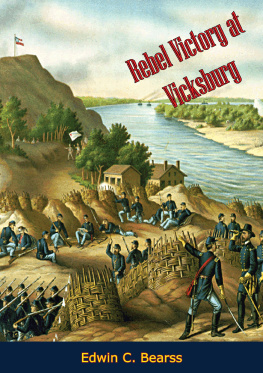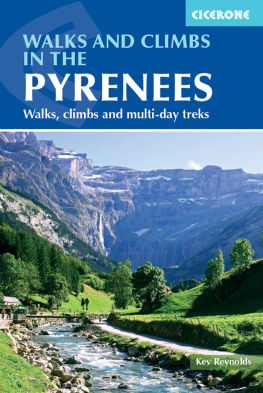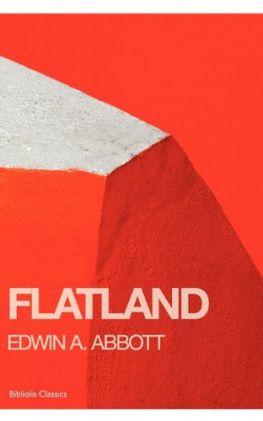CONTENTS.
CHAPTER I.
IN PERSPECTIVE.
"In fortune's empire blindly thus we go;
We wander after pathless destiny,
Whose dark resorts since prudence cannot know,
In vain it would provide for what shall be."
A trip to the Pyrenees is not in the Grand Tour. It is not even in any southerly extension of the Grand Tour. A proposition to exploit them meets a dubious reception. Pictures arise of desolate gorges; of lonely roads and dangerous trails; of dismal roadside inns, where, when you halt for the night, a "repulsive-looking landlord receives the unhappy man, exchanges a look of ferocious intelligence with the driver,"and the usual melodramatic midnight carnage probably ensues. The Pyrenees seem to echo the motto of their old counts, "Touches-y, si tu l'oses!" the name seems to stand vaguely for untested discomforts, for clouds and chasms, and Spanish banditti in blood-red capas; to be, in a word, a symbol of an undiscovered country which would but doubtfully reward a resolve to discover.
Yet there is a fascination in the project, as we discuss a summer tour. There, we know, are mountains whose sides are nearly Alpine, whose shoulders are of snow and glacier, whose heads rise to ten and eleven thousand feet above the sea. There, we know, must be savage scenery,ravines, cliffs, ice-rivers, as in the Alps; valleys and streams and fair pastures as well, and a richer southern sunlight over the uplands; besides a people less warped by tourists, intensely tenacious of the past, and still tingling with their old local love of country,a people with whom, "to be a Barnais is greater than to be a Frenchman."
To visit the Pyrenees, too, will be almost to live again in the Middle Ages. The Roman, the Moor, the Paladin, Froissart, Henry of Navarre, have marked the region both in romance and in soberer fact. Its valleys have individual histories; its aged towns and castles, stirring biographies. The provinces on its northern flanks, once a centre, a nucleus, of old French chivalry, are saturated with medival adventure. One visits the Alps to be in the tide of travel, to find health in the air, to feel the religion of noble mountains. In the Pyrenees is all this, and more,the present and the past as well. As we call down the shades of old chroniclers from the dust of upper library tiers, we grow more and more in desire of a closer acquaintance. Csar, Charlemagne, Roland, the Black Prince, Gaston Phoebus, Montgomery and knightly King Henry stand in ghostly armor and beckon us on.
II.
Facts of detail prove farther to seek. We inquire almost in vain for travelers' notes on the Pyrenees. Those who had written on Spanish travel spoke of the range admiringly. But these authors, we find, invariably, only passed by the eastern extremity, or the western, of the great mountain wall; the mountains themselves they did not visit. Search in the large libraries brings out a few scant volumes of Pyrenean travel, but all, with two or three exceptions, bear date within the first three-fifths of the century. It is with books, often, as with the Furanon, the wine of the Pyrenees, and with certain other vintages: age improves them only up to a certain limit; when put away longer than a generation, they lose value.
Taine's glowing Tour, itself made nearly thirty years ago, is a delight, almost a marvel; the style, the torrent of simile, the vivid thought, rank it as a classic. But M. Taine's is less a book of travel than a work of art; in the iridescence of the descriptions, you lose the reflection of the things described. Even hand-books, the way-clearing lictors of travel, prove, as to the Pyrenees region, first scarce and then scanty. The few we unearth in the stores are armed only with the usual perfunctory fasces of facts,cording information into stiff, labeled bunches, marshaling details into cramped and characterless order, scrutinizing the ground with a microscope, never surveying it in bird's-eye view. Two recent novels we eagerly buy, hearing that their scenes are laid in that vicinity; but each merely speaks, in easy omniscience, of the "distant chain of blue mountains," or of the "far-off snow-peaks outlined against the horizon," and the fiction proves hardly worth sifting for so little fact. Plainly the Pyrenees lack the voluminous literature of the Alps. Plainly we shall have, in part, to grope our way. The grooves of Anglo-Saxon travel are many and deep, lined increasingly with English speech and customs; but they have not yet been cut into these Spanish mountains.
The search enlarges the horizon, however. The lonely roads we learn to qualify in thought with occasional branches of railway; the dangerous trails, with certain cultivated highways; the dismal road-side inns, with spasmodic hotels, some even named confidently as "palatial." We read of spas and springs and French society, more than of chasms and banditti. We realize in surprise that over all the past of these mountains flows now in bracing contrast the easy, laughing tide of modern French fashion,life so different in detail, so like in kind, to the day of trapping and tourney.
It is enough:
"Now are we fix'd, and now we will depart,
Never to come again till what we seek
Be found."
III.
Difficulties always lessen after a decision. I casually question a doughty Colonel, who has been an indefatigable traveler; he has twice girdled the earth, and has many times cross-hatched Spain; he has not been to the Pyrenees, but heartily urges the trip. He assures me that the banditti there have become, he believes, comparatively few; that they now rarely slit their captives' ears, and that present quotations for ransoms, so he hears, are ruling very low, much lower than at any previous epoch. Thus comforted, we interview other traveled friends; but our goal is to all an unvisited district. We find no kindly Old Travelers returned from Pyrenees soil, to counsel us, advise us, and inflict well-meant and inordinate itineraries upon us. At least, then, we are not alone in our ignorance; it is evident that our knowledge of the region is not blamably less than that of others, and that the Pyrenees are in literal fact a land untrodden by Americans.











